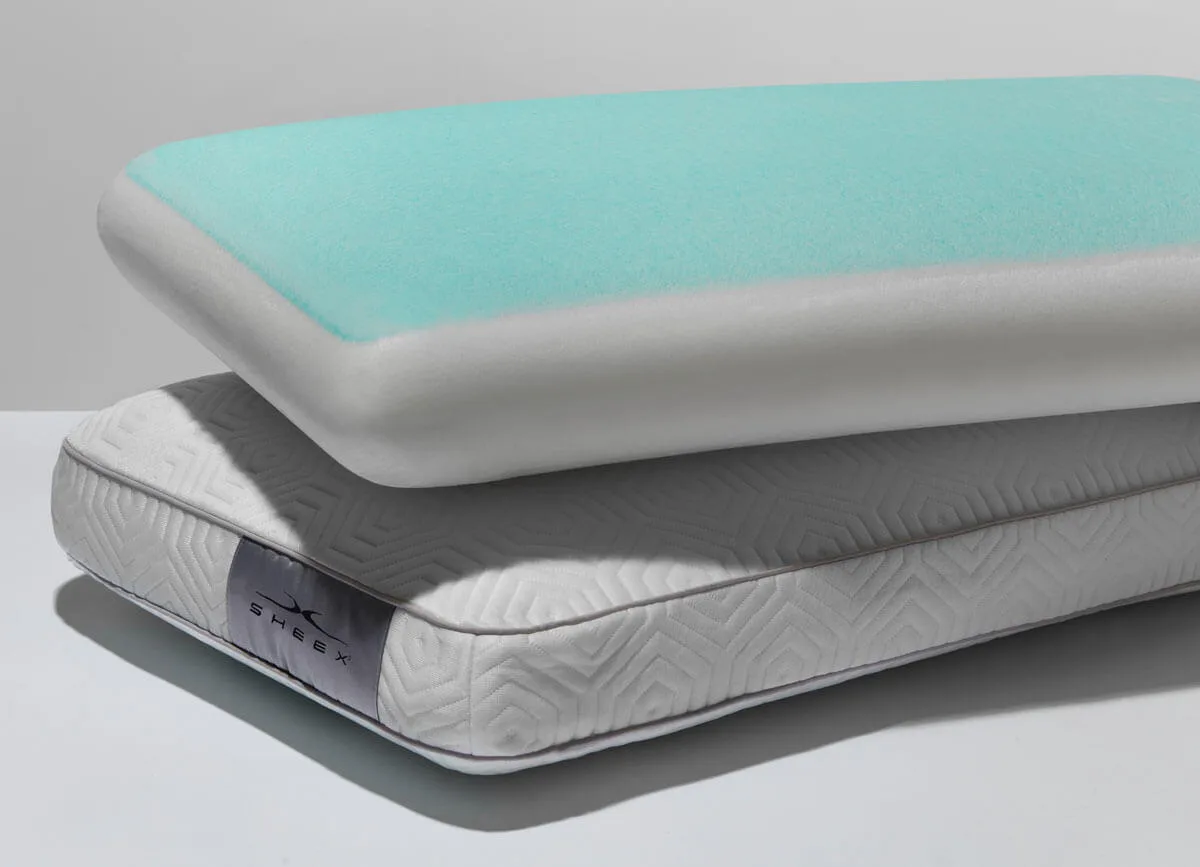A good night’s sleep is not just about the right mattress; the pillow you choose is equally crucial, especially when it comes to neck support and ensuring spinal alignment. Here’s how to find the perfect pillow that offers both comfort and the necessary support for a restful sleep.
1. Understanding the Importance of Neck Support
The primary function of a pillow is to keep your neck aligned with your spine. Poor neck support can lead to discomfort, neck pain, and disturbed sleep, which can affect your overall health and well-being. A well-chosen pillow can help prevent common sleep-related neck problems and enhance sleep quality.
2. The Right Pillow for Your Sleeping Position
- Side Sleepers: Need a thicker pillow to fill the space between the neck and the mattress, maintaining a horizontal neck alignment. Look for a firm pillow that can support the weight of your head without losing shape.
- Back Sleepers: Should opt for a thinner pillow that supports the natural curvature of the spine. Memory foam or a pillow with a built-in neck contour can be ideal.
- Stomach Sleepers: Generally need a very thin pillow or no pillow at all to keep the neck in line with the spine. Too thick a pillow can force the neck into a bending position, leading to pain.
3. Consider the Material
- Memory Foam: Contours to the shape of your neck and provides consistent support throughout the night. It is particularly beneficial for those who suffer from neck pain.
- Feather: Offers a soft, luxurious feel, but may not provide adequate support as feathers can move away from the neck area during the night.
- Latex: Provides firm support and holds its shape well. It’s also hypoallergenic and resistant to dust mites.
- Polyester: Is affordable and soft, but may flatten quickly and require frequent replacing.
4. Pillow Firmness
Choose a pillow’s firmness based on your comfort preference and sleeping position. A firmer pillow is usually better for side sleepers, while a softer pillow might be more comfortable for back and stomach sleepers.
5. Pillow Height and Adjustability
The height of the pillow, also known as loft, is critical for neck support. Some pillows come with adjustable layers or fillings that allow you to customize the height according to your personal comfort and body size.
6. Hypoallergenic Properties
If you suffer from allergies, consider hypoallergenic pillows that prevent allergens like dust mites, mold, and pet dander. These pillows are often made from memory foam, latex, or specially treated synthetic fibers.
7. Durability and Ease of Care
Look for a pillow that is durable and easy to care for. Check if the pillow cover is removable and machine washable, which helps maintain hygiene and extend the pillow’s life.
8. Trying Out Pillows
Whenever possible, test pillows before making a purchase. Many stores allow you to feel the pillow to assess its firmness and support. Consider shops with good return policies, as it might take a few nights of sleep to determine if a pillow suits your needs.
Conclusion
Finding the perfect pillow involves understanding your sleep needs, especially how your sleeping position affects your neck and overall spinal alignment. By considering factors such as pillow material, firmness, and height, you can choose a pillow that not only feels comfortable but also supports your neck properly, ensuring better sleep quality and preventing discomfort. Remember, investing in the right pillow is just as important as choosing the right mattress for a good night’s sleep.



 Blankets
Blankets Mattress Protectors
Mattress Protectors Sheets
Sheets









